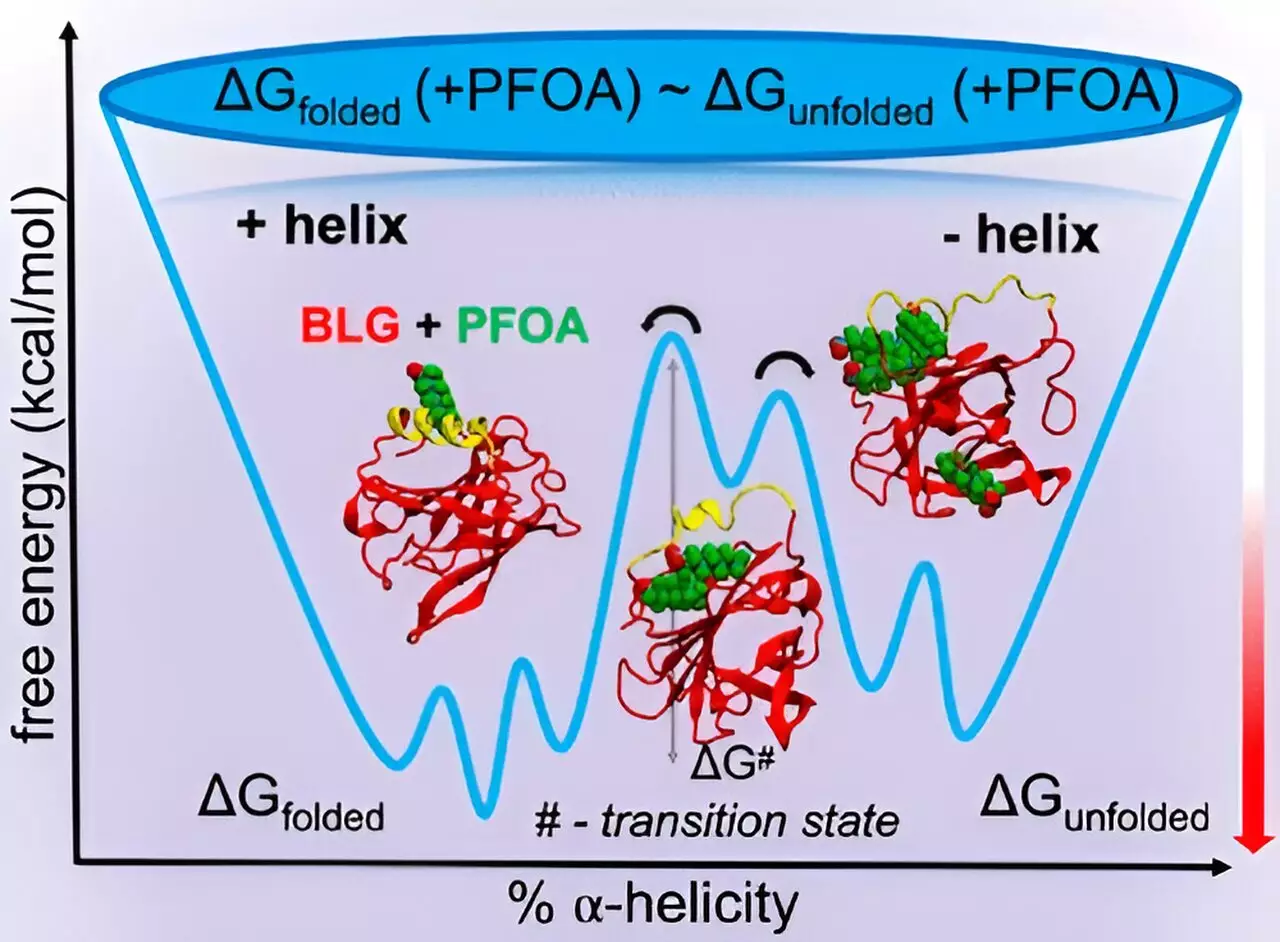Recent research conducted at The University of Texas at El Paso has shed light on the destructive effects of nanoplastics and per- and polyfluoroalkyl substances (PFAS) on biomolecular structures and functions. These manmade compounds, commonly known as forever chemicals, have been linked to a range of negative health outcomes and developmental issues. The team of researchers focused their study on three critical proteins essential for human development: beta-lactoglobulin, alpha-lactalbumin, and myoglobin.
The findings of the research team revealed that nanoplastics and PFAS have the ability to alter the structure of these proteins at an atomic level. Specifically, the compounds have been found to dissolve a region of proteins known as the alpha helix, converting them into beta sheets. This unexpected transformation has significant implications for human health, as it mirrors the alteration observed in amyloid proteins associated with neurodegenerative diseases.
The research team uncovered several crucial findings during their investigations. Firstly, they discovered that the binding efficiency of beta-lactoglobulin to essential nutrients like retinol and fatty acids decreases upon exposure to nanoplastics and PFAS. This decline in binding efficiency can have serious implications for infants relying on formula milk for proper nutrition and development.
Furthermore, the study revealed that alpha-lactalbumin, a protein vital for lactose synthesis in human breast milk, undergoes structural corruption when exposed to nanoplastics and PFAS. This structural alteration could compromise lactose formation and lead to developmental defects in infants, such as compromised immunity and reduced mineral absorption.
The research team also found that myoglobin, a protein responsible for storing oxygen in the blood and muscle tissue of mammals, is compromised by nanoplastics and PFAS. This disruption in functionality could result in health issues such as breathlessness and anemia, highlighting the far-reaching consequences of exposure to these compounds.
The groundbreaking research conducted by Dr. Narayan, Dr. Vukovic, and their teams has the potential to significantly impact public health and environmental policies. By understanding how nanoplastics and forever chemicals disrupt biomolecular functions, scientists can develop safer alternatives to these materials and address global challenges effectively.
Dr. Narayan and his research team plan to continue their studies and delve into the effects of other plastics and PFAS compounds. Their innovative approach to understanding the impact of these manmade materials on human health serves as a prime example of the transformative work carried out by UTEP researchers. The insights gained from this research are crucial for developing strategies to mitigate the detrimental effects of nanoplastics and forever chemicals on human health and the environment.



Leave a Reply